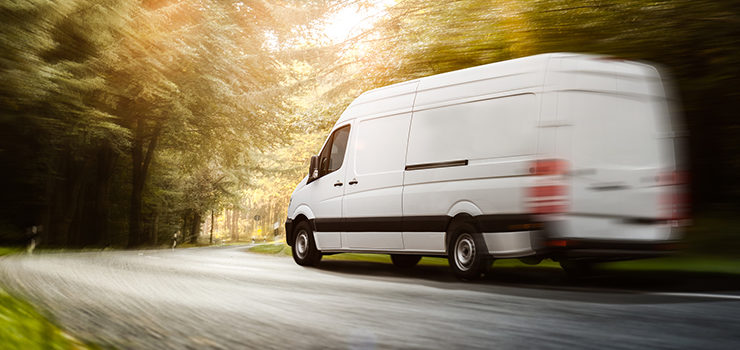Grubhub, DoorDash, Uber and Lyft all have something in common, despite the fact that the first two companies move food and the latter two move people. These new(ish) services provide custom local transportation, and they do it fast.
Sure, taxi cabs and pizza delivery services have accomplished the same tasks for decades. The tides are turning, though, with emphasis on flexibility, speed and efficiency, not to mention more user control and ease of payment. These are changes that society is seeing at every level and in every sector of business. We want it now, and we want it just so.
The HVAC/P business and greater construction industries are no exception, especially at a time when skilled labor is at a premium and minimizing contact between individuals is important. The delivery of parts large and small is beginning to change with two Uber or DoorDash-type platforms; Curri and PartRunner.
 HVAC parts and material delivery services
HVAC parts and material delivery services
Both of these companies, PartRunner in New England and Curri nation-wide, are custom parts/material delivery services. These “fleet augmentation” businesses are hired by wholesalers to pick up product and deliver it to jobsites. It sounds simple, but these services offer many advantages to both the distributor and the installing contractor, especially when delivery is time sensitive.
“We have a platform that instantaneously connects buyers with suppliers,” explains Daniel Legmann, who founded PartRunner with Yoshua Rozen and Tarun Reddy in 2018. “We orchestrate the deliveries across our network of drivers, who we hire, manage and maintain. For the wholesaler, we provide an outsourced fleet. Our clients include the leading distributors in the Northeast.”
PartRunner’s aim is to help wholesalers in the construction space deliver their products more quickly, reliably and economically than ever before. According to Legmann, using PartRunner gives the wholesaler a leg up on the competition.
Similarly, Curri’s focus on the “last mile delivery space” is to make the industry more profitable and efficient, and allow supply houses to provide better service to the contractor.
“Before my partner, Brian Gonzalez, and I launched Curri in 2018, we spent a lot of time visiting construction sites,” said Matthew Lafferty, CEO and co-founder. “We learned from one contractor that they spent 150+ hours making supply runs each year. Of course, that’s in addition to all the driving that the wholesalers are doing. It became obvious that there was great opportunity to streamline the process, allowing professionals at each location to continue with their primary task.”
Save time and money with on-demand service
Not only is it an ineffective use of skilled manpower to have a tradesperson on the road, but Legmann explains that COVID has presented a real challenge for wholesalers. “The pandemic has created staffing issues at supply houses nationwide,” he said. “Sending their people out on the road is more difficult now than ever.”
Lafferty explains that their service provides an elastic fleet solution, in which the customer only pays for what they need. Wholesalers can’t perfectly predict demand, they’re not always able to efficiently adapt to very small or very large deliveries, and they can’t always provide delivery at the perfect time. As a result, some sales inevitably go to a competitor. With Curri or PartRunner, wholesalers can always say “yes” to a sale, even if all their trucks are out on the road. These services can pick up a handheld item in a car, or provide a semi-truck or flatbed for huge orders.
“The wholesaler acts as a sales force, but if they have a truck fleet, they’re also running a logistics company,” said Lafferty. “We provide a solution for them to flex up or down and save money.”
That flexibility is the beauty of fleet augmentation. Wholesalers can use the platforms as needed. A supply house could retire its fleet and rely entirely on Curri or PartsRunner, or they could use the service once a year. There’s no overhead or maintenance cost. The services are truly on-demand.
The new platforms have proven to save wholesalers as much as 40% on product delivery, largely through cost avoidance. Curri and PartRunner offset or eliminate the costs of trucks, drivers, fuel, liability, insurance, repairs and maintenance, etc.
“Most supply houses we’ve spoken with simply consider their fleet a cost of doing business,” said Lafferty. “It’s a massive budgetary consideration that we can reduce. They can use us for hot shot deliveries while maintaining their own fleet, or we can take over a whole truck route.”
“Suppliers who don’t have the ability to make urgent, on-demand, or long distance deliveries are leaving sales on the table and risk losing customers and business to suppliers who do,” continued Lafferty. “Fleet augmentation is the secret weapon of suppliers who care about getting material in their customer’s hands, fast.”
How does it work?
Both Curri and PartRunner can be used as a web app or a phone app. They are dual-sided platforms. Contractors, ordering from the wholesaler, most often use the phone app, while wholesalers working from the counter use the web app more frequently. Once the order is placed, gig drivers receive confirmation of pickup, and customers are charged by the mile, similar to Uber or Lyft.
Curri and PartRunner were founded with a similar goal; to increase the profitability of the construction sector. Trade professionals work extremely hard and their time is more valuable now than ever. Fleet augmentation is a tool for both wholesalers and contractors to increase efficiency, expedite deliverables and accomplish more in a work day.

